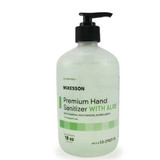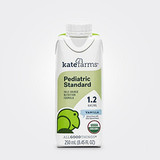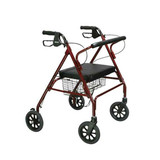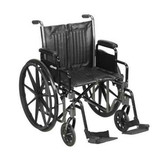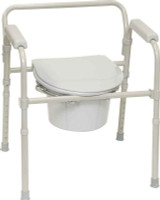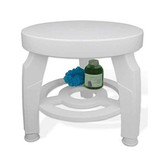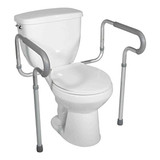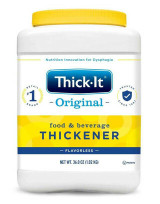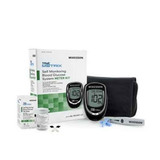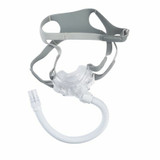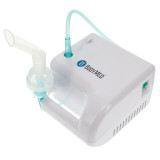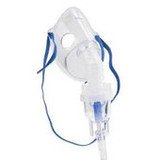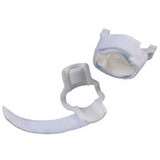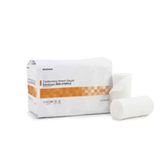
Managing Medication Side Effects in Older Adults
Medications play a vital role in managing chronic health conditions, allowing older adults to live longer, healthier lives. However, more often than not, people experience medication side effects, and these can be more pronounced and pose a greater challenge for older adults.
In recent times, medical research has produced a vast number of new medicines to treat conditions that were previously untreatable or to improve results compared to older medicines. This is a double-edged sword because, while it allows more targeted treatment, it also increases the risk of interactions due to the ever-increasing use of medicines.
Why Older Adults Are More Susceptible to Side Effects
As we age, our bodies undergo physiological changes that can affect how medications are processed and absorbed. Kidney and liver function often decline with age, making it harder for the body to eliminate medications. A National Kidney Foundation study found that adults over 60 have an almost 30% lower glomerular filtration rate (GFR), a measure of kidney function, compared to adults in the 20 to 29 age group. This decline can lead to medications staying in the system longer, potentially leading to stronger effects and a higher risk of side effects.
Changes in body composition, with a decrease in muscle mass and an increase in fat tissue, can alter how medications are distributed throughout the body. According to an article by the Stop Obesity Alliance at the George Washington University, fat tissue affects drug metabolism and stores certain medications, leading to a slower release and potentially prolonged effects. These changes can significantly impact how medications work in older adults.
Another factor that increases the risk of side effects in older adults is polypharmacy, the practice of taking multiple medications. This is quite common, as seniors often manage several chronic conditions that require different medications. A Keiser Family Foundation (KFF) research report found that more than half of all adults over 65 take four or more prescribed medications daily. With each additional medication comes the possibility of interactions. These interactions can alter the effectiveness of medications or even create new side effects.
Common Side Effects in Older Adults
Medication side effects in older adults vary depending on the specific medications being taken. However, some side effects are more common due to the physiological changes we talked about earlier.
- Cognitive Impairment: Confusion, memory problems, and dizziness are frequent side effects in older adults. These can significantly impact daily activities and increase the risk of falls. Medications that affect the central nervous system, such as pain relievers, antidepressants, and sleep aids, are more likely to cause these effects.
- Falls: Increased risk of falls is a major concern in older adults, and more so with medication side effects. Dizziness, drowsiness, and low blood pressure can all contribute to falls. Discuss any signs of side effects that might impair balance or coordination with your doctor.
- Incontinence: Difficulty controlling urination or bowel movements can be a side effect of some medications, particularly those affecting the nervous system or muscles.
- Drowsiness and Fatigue: Medications can cause drowsiness and fatigue, which can affect daily activities and increase the risk of falls. It's important to be aware of these potential side effects and avoid taking medications that cause drowsiness before activities requiring alertness.
- Stomach Upset: Constipation, diarrhea, and nausea are common side effects of various medications. These can be uncomfortable and may lead to dehydration or malnutrition.
- Dry Mouth: Dry mouth is a frequent side effect of many medications, especially those used for allergies, depression, and high blood pressure. This can make swallowing difficult and increase the risk of dental problems.
Strategies for Managing Side Effects
Fortunately, several strategies exist to manage medication side effects in older adults, reduce the risk of health complications and preserve overall well-being and quality of life.
- Communication is Key: It’s very important to communicate openly with your doctor and pharmacist. Discuss all medications you are taking, including over-the-counter drugs and supplements and mention side effects you may be experiencing, no matter how minor they seem. This information will help them identify potential medication interactions or adjust dosages to minimize side effects.
- Review Medications Regularly: Schedule a medication review every year or whenever you think something feels different. This allows them to assess if all medications are still necessary and dosages are still appropriate. As your health condition changes, medications may need to be adjusted or discontinued.
- Consider Alternatives: If you experience significant side effects with a particular medication, discuss alternative medications with your doctor. There may be medications with fewer side effects that can achieve the same therapeutic goals.
- Lifestyle Adjustments: While medications play a critical role, healthy lifestyle habits can also help manage side effects. Maintaining a balanced diet rich in fruits, vegetables, and whole grains can improve your overall health and potentially reduce the impact of side effects. Regular exercise improves balance and coordination, reducing the risk of falls. Getting enough sleep is crucial for maintaining cognitive function and overall well-being.
- Listen to Your Body: In the words of Deepak Chopra, “Modern medicine, for all its advances, knows less than 10 percent of what your body knows instinctively”. Our bodies are remarkably sensitive and communicative if we learn to look out for signals. If something feels off, talk to your doctor.
Living Well with Medications
While side effects can be a concern, there are ways to minimize their impact and live well with medications. Here are some additional tips:
- Reduce Medication Burden: Talk to your doctor about simplifying your medication routine. This could involve combining medications whenever possible or using single-dose packaging if available.
- Importance of Adherence: Always take medications as prescribed by your doctor. Changing dosages or stopping medications abruptly can be more dangerous than any side effects.
- Open Communication: Report any new or worsening side effects to your doctor promptly. Don't hesitate to ask questions or express concerns you have about your medications.
- Focus on Maintaining Independence: Medication side effects shouldn't limit your independence. Work with your doctor to develop a medication management plan that minimizes side effects and allows you to maintain your quality of life.
Conclusion
Medications play a vital role in helping older adults live long, healthy, and fulfilling lives. By managing chronic conditions, preventing complications, and even enhancing cognitive function, medications empower seniors to stay active and engaged in the world around them. However, as we've discussed, side effects are a reality.
The primary takeaway is not to fear medication but to approach it with an open mind and collaborative mindset. Working together with your doctor and pharmacist, you can find the right balance between treatment and tolerability. Remember, you're not fighting this fight alone – millions of older adults successfully manage their medications and maintain a high quality of life.
Also, remember that there are people and organizations that would be happy to support and guide you along this journey. At LL Medico, we have almost 30 years of experience in senior care products. We can advise on the best nutritional supplements to ensure an optimum diet, over-the-counter formulations to deal with minor niggles and a range of adult diapers and mobility devices, to name a few. Give us a call at (855) 422-4556 or email [email protected]. We want to help you live your golden years to the fullest.
































